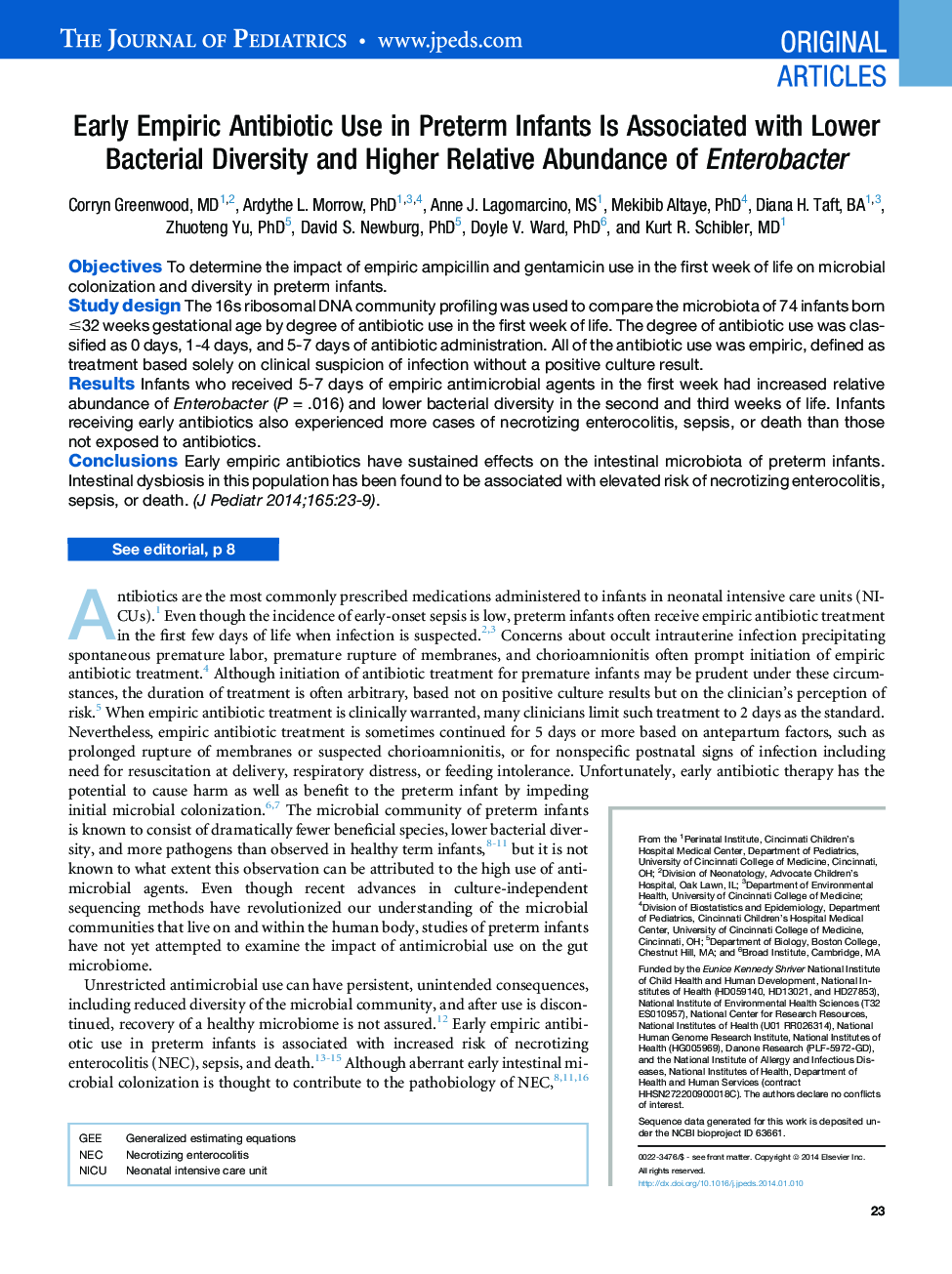| کد مقاله | کد نشریه | سال انتشار | مقاله انگلیسی | نسخه تمام متن |
|---|---|---|---|---|
| 4164861 | 1607453 | 2014 | 7 صفحه PDF | دانلود رایگان |

ObjectivesTo determine the impact of empiric ampicillin and gentamicin use in the first week of life on microbial colonization and diversity in preterm infants.Study designThe 16s ribosomal DNA community profiling was used to compare the microbiota of 74 infants born ≤32 weeks gestational age by degree of antibiotic use in the first week of life. The degree of antibiotic use was classified as 0 days, 1-4 days, and 5-7 days of antibiotic administration. All of the antibiotic use was empiric, defined as treatment based solely on clinical suspicion of infection without a positive culture result.ResultsInfants who received 5-7 days of empiric antimicrobial agents in the first week had increased relative abundance of Enterobacter (P = .016) and lower bacterial diversity in the second and third weeks of life. Infants receiving early antibiotics also experienced more cases of necrotizing enterocolitis, sepsis, or death than those not exposed to antibiotics.ConclusionsEarly empiric antibiotics have sustained effects on the intestinal microbiota of preterm infants. Intestinal dysbiosis in this population has been found to be associated with elevated risk of necrotizing enterocolitis, sepsis, or death.
Journal: The Journal of Pediatrics - Volume 165, Issue 1, July 2014, Pages 23–29